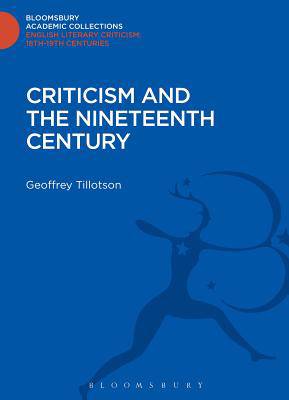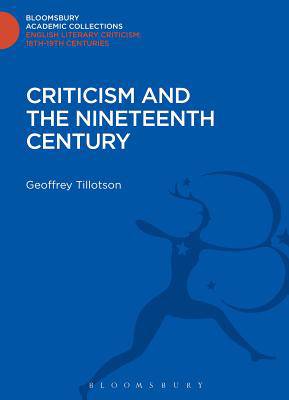
Bedankt voor het vertrouwen het afgelopen jaar! Om jou te bedanken bieden we GRATIS verzending (in België) aan op alles gedurende de hele maand januari.
- Afhalen na 1 uur in een winkel met voorraad
- In januari gratis thuislevering in België
- Ruim aanbod met 7 miljoen producten
Bedankt voor het vertrouwen het afgelopen jaar! Om jou te bedanken bieden we GRATIS verzending (in België) aan op alles gedurende de hele maand januari.
- Afhalen na 1 uur in een winkel met voorraad
- In januari gratis thuislevering in België
- Ruim aanbod met 7 miljoen producten
Zoeken
Omschrijving
The re-emergence into critical esteem of the literature of the English mid-nineteenth century has been one of the post-war excitements for students and general readers. Mid-nineteenth century literature is not simply the best body of literature the English have produced. It happens also to be literature that has a practical interest for ourselves. We live so plainly in its wake. The problems being faced a hundred years ago are the problems still facing ourselves, such as the continued supremacy of science and its methods and the consequently progressive disappearance of what was called the supernatural. Nineteenth-century literature, however, is interesting for other reasons than extended topicality, offering infinite aesthetic riches, as Geoffrey Tillotson discusses in this volume of essays.
Specificaties
Betrokkenen
- Auteur(s):
- Uitgeverij:
Inhoud
- Aantal bladzijden:
- 283
- Taal:
- Engels
- Reeks:
Eigenschappen
- Productcode (EAN):
- 9781472510990
- Verschijningsdatum:
- 8/05/2014
- Uitvoering:
- Hardcover
- Formaat:
- Genaaid
- Afmetingen:
- 156 mm x 234 mm
- Gewicht:
- 603 g

Alleen bij Standaard Boekhandel
+ 644 punten op je klantenkaart van Standaard Boekhandel
Beoordelingen
We publiceren alleen reviews die voldoen aan de voorwaarden voor reviews. Bekijk onze voorwaarden voor reviews.









